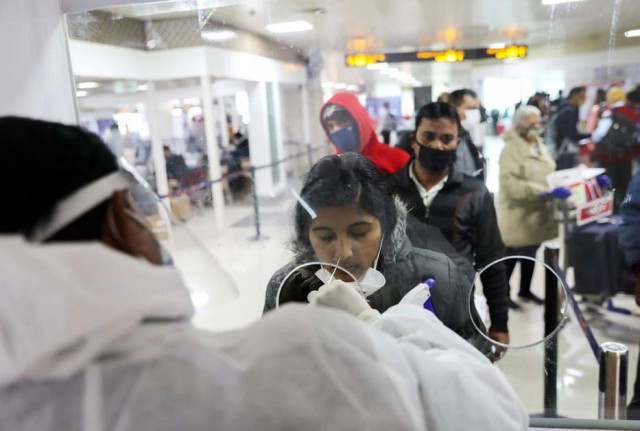Covid resurges in India as active cases near 3,000
Kerala is the worst-hit state, followed by Maharashtra and Delhi, amid a sharp Covid spike reported in just four days

India is witnessing a fresh surge in Covid-19 cases, with active infections nearing 3,000 nationwide, as Kerala emerges as the worst-hit state followed by Maharashtra and Delhi amid a sharp uptick in cases within just four days, NDTV reported.
According to official data released by the Ministry of Health and Family Welfare, the country recorded 2,710 active cases as of May 30, up from 1,010 on May 26 — a nearly threefold increase. Kerala has reported the highest number of cases at 1,147, followed by Maharashtra with 424, and Delhi with 294. Gujarat has also recorded 223 cases.
Other states reporting a notable number of infections include Tamil Nadu and Karnataka with 148 cases each, and West Bengal with 116. Rajasthan has recorded 51 cases, while Uttar Pradesh has reported 42. Smaller case numbers have been reported in Puducherry (25), Haryana (20), Andhra Pradesh (16), and Madhya Pradesh (10).
Read more: CDC updates COVID vaccine guidance, keeps option open for healthy children
Goa reported seven cases, whereas Odisha, Punjab, and Indian Illegallly Occupied Jammu and Kashmir (IIOJK) each reported four. Telangana, Arunachal Pradesh, and Chandigarh reported three cases each, while Mizoram and Assam recorded two cases each. Data from Bihar remains unavailable.
At least seven deaths have been linked to the recent spike, though the cause of death remains under assessment in some instances. Among the fatalities, two occurred in Maharashtra and Delhi; both individuals reportedly had serious comorbidities. Except for one case in Punjab, all the deceased were senior citizens, officials said.
Health authorities, however, have urged the public not to panic, stating that the current wave consists mostly of mild infections.
Indian Council of Medical Research (ICMR) Director General Dr Rajiv Bahl said there is no cause for alarm but emphasised the need for continued vigilance.
“The public need not worry about this new variant of Covid-19. We just need to be vigilant,” he said earlier this week. “We are not talking about enhanced precautions right now. But if someone is a cancer patient or has immunity problems, then we generally advise them to avoid any infection.”
Also read: Covid-19 cases on the rise in India, with 2 new variants detected
Genomic surveillance data from the Indian SARS-CoV-2 Genomics Consortium (INSACOG) shows that the most prevalent variant remains JN.1, accounting for 53 per cent of all recent samples. This is followed by the BA.2 variant (26%) and other Omicron sublineages (20%).
The report also noted at least one confirmed case of the NB.1.8.1 variant, which is believed to be highly contagious, and four cases of the LF.7 variant — both currently classified by the World Health Organisation (WHO) as Variants Under Monitoring (VUMs). While these subvariants are not yet classified as Variants of Concern (VOCs), they are believed to be driving case spikes in parts of China and Asia.




















COMMENTS
Comments are moderated and generally will be posted if they are on-topic and not abusive.
For more information, please see our Comments FAQ